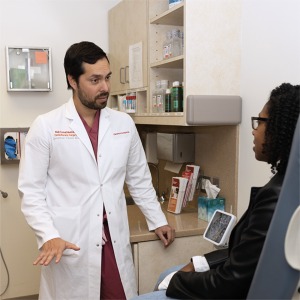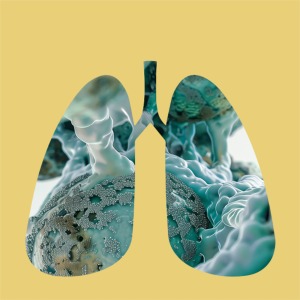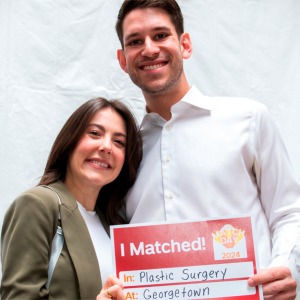Reversing A Global Trend
Dateline
![Male doctor wearing stethoscope and outline of Haiti]](/sites/default/files/styles/width_xxsml/public/Summer%20%2724%20Issue/Notable/01_Reversing_A_Global_Trend.jpg?itok=WYbU8QDR)
In 2016, Dr. Margaret “Molly” McNairy witnessed what she called an “epidemiologic transition” in Haiti.
“We discovered that the most serious health risk to the general population in the capital city of Port-au-Prince was no longer HIV, malaria or TB, as it had been in previous years,” says Dr. McNairy, who since 2014 had made monthly visits to Haiti in support of her work to prevent the spread of HIV/AIDS. Instead, an increasing number of patients were presenting to local clinics with symptoms of cardiovascular disease, especially early-onset high blood pressure and premature heart disease.
Haiti was not the only place where this kind of shift was noted in a resource-constrained setting. Dr. Daniel Fitzgerald, director of Weill Cornell Medicine’s Center for Global Health and the B.H. Kean Professor in Tropical Medicine, observed a similar trend while working at the Weill Cornell Bugando Program in Tanzania, where he also noticed a rise in heart failure and strokes in people in their 30s and 40s.
“Haiti, like the majority of low-income countries, was a data desert in terms of heart disease,” explains Dr. McNairy. In order to make sense of and try to reverse this global trend, Dr. McNairy, along with fellow core center faculty Dr. Jean Pape and Dr. Vanessa Rouzier, instituted the Haiti Cardiovascular Disease Cohort. Supported by the National Heart, Lung, and Blood Institute and GHESKIO, a research facility and public health clinic in Port-au-Prince led by Dr. Pape, the Howard and Carol Holtzmann Professor in Clinical Medicine, the study aims to chart and evaluate modifiable cardiovascular risk factors and disease in 3,000 Haitian adults ages 18-30 to identify drivers that can be targeted for prevention.
After following study participants for several years, Dr. McNairy and her colleagues found that heart disease presents differently in resource-poor countries like Haiti. “Unlike higher-income countries, where ischemic heart disease is caused by clogged arteries from too much fat and sugar,” explains Dr. McNairy, “the cause in Haiti is under-recognized and untreated high blood pressure, affecting one in three adults, including many under 30.”
They also found that risk factors contributing to disease are dissimilar from factors in western countries. The Haiti CVD Cohort study showed that pollution — most commonly elevated blood lead levels — and nutrition challenges stemming from food insecurity are among the modifiable causes.
In response, Dr. McNairy and her colleagues are collaborating with local community and public health experts to personalize interventions to fit patient needs. For instance, community health workers visited patients with uncontrolled hypertension in their homes and took blood pressure readings, provided health education and delivered medications. Blood pressure control increased from 0% to 72% after six months.
“We’re improving blood pressure control by leveraging social networks of these communities,” says Dr. McNairy. “The mission of our study is to use data to save lives, and the silver lining is that cardiovascular disease is a preventable disease.”
Summer 2024 Front to Back
-
Features

Science Over Stigma
By probing the physical cause of obesity, researchers have repudiated harmful misconceptions, leading to new, highly effective medications. -
Features

The Sounds of Science
How insights from ornithology, coupled with advances in AI, could enable doctors to screen for disease using the human voice. -
Features

Bones’ Secret Cells
Research led by Dr. Matthew Greenblatt and his lab is revealing connections between bone stem cells and a surprising array of conditions — including cancer. -
Notable

Expansion in Midtown
A 216,000 square-foot expansion of clinical and research programs at 575 Lexington Ave. will provide state-of-the-art clinical care at the Midtown Manhattan location. -
Notable

A Dramatic Growth in Research
In the decade since the Belfer Research Building’s opening, Weill Cornell Medicine’s sponsored research funding has more than doubled. -
Notable

Dateline
Heart disease presents differently in resource-poor countries like Haiti. Dr. Molly McNairy and colleagues are working to identify underlying causes and prevention. -
Notable

Overheard
Weill Cornell Medicine faculty members are leading the conversation about important health issues across the country and around the world. -
Notable

News Briefs
Notable faculty appointments, honors, awards and more — from around campus and beyond. -
Grand Rounds

Living With Endometriosis: A 12-Year Journey
How the right treatment reduced the pain of endometriosis -
Grand Rounds

Taking Action Against Lung Cancer
Monitoring by Weill Cornell Medicine’s Incidental Lung Nodule Surveillance Program can lead to early cancer detection. -
Grand Rounds

News Briefs
The latest on teaching, learning and patient-centered care. -
Discovery

Gut Check
New evidence shows that a bacterium found in the gut of livestock could be a trigger of multiple sclerosis in humans. -
Discovery

Researchers Chart the Contents of Human Bone Marrow
A new method for mapping the location and spatial features of blood-forming cells within human bone marrow provide a powerful new means to study diseases that affect it. -
Discovery

Findings
The latest advances in faculty research, published in the world’s leading journals. -
Alumni

Profiles
Forging critical connections to move research from the bench to the bedside, our alumni are making an impact. -
Alumni

Notes
What’s new with you? Keep your classmates up to date on all your latest achievements with an Alumni Note. -
Alumni

In Memoriam
Marking the passing of our faculty and alumni. -
Alumni

Moments
Marking celebratory events in the lives of our students, including the White Coat Ceremony and receptions for new students. -
Second Opinion

Equal Risk
Does race have a role in calculations of health risks? -
Exchange

Health Equity
Two faculty members discuss the importance of community-engaged research in their work to help combat cancer disparities fueled by persistent poverty. -
Muse

Finding Strength in Art
Surin Lee is a Weill Cornell Medicine-Qatar medical student, Class of 2026, and a visual artist. -
Spotlight

Partners in Solving Surgical Challenges
Dr. Darren Orbach (M.D. ’98, Ph.D.) and Dr. Peter Weinstock (M.D. ’98, Ph.D.) are pioneering the use of practice simulations to ensure successful complex surgeries.
